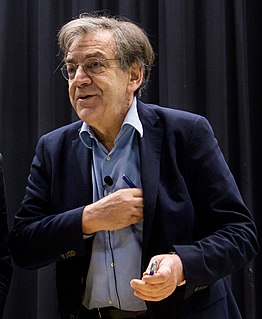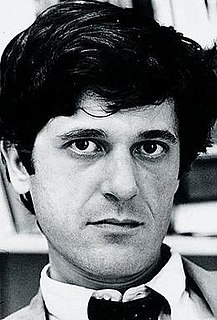A Quote by Dalia Sofer
Edgar Sawtelle is a boy without a voice, but his world, populated by the dogs his family breeds, is anything but silent. This is a remarkable story about the language of friendship—a language that transcends words.
Related Quotes
We believe we can also show that words do not have exactly the same psychic "weight" depending on whether they belong to the language of reverie or to the language of daylight life-to rested language or language under surveillance-to the language of natural poetry or to the language hammered out by authoritarian prosodies.
Dare I speak ,to oppressed and opressor in the same voice? Dare I speak to you in a language that will move beyond the boundaries of domination- a language, that will not bind you, fence you in, or hold you? Language is also a place of struggle. The oppressed struggle in language to recover ourselves, to reconcile, to reunite, to renew. Our words are not without meaning, they are an action, a resistance. Language is also a place of struggle.
Being a slow reader would normally be a deficiency; I found a way to make it an asset. I began to sound words and see all those qualities - in a way it made words more precious to me. Since so much of what happens in the world between human beings has to do with the inconsideration of language, with the imprecision of language, with language leaving our mouths unmediated, one thing which was sensuous and visceral led to, in the use of language, a moral gesture. It was about trying to use language to both exemplify and articulate what good is.
Each man is contained and constrained, on entering social life, to fit his own life in, just as he fits his words and thoughts into a language that was formed without and before him and which is impervious to his power. Entering the game, as it were, whether of belonging to a nation or of using a language, a man enters arrangements which it does not fall to him to determine, but only to learn and respect the rules.
Sometimes language gets in the way of the story's feelings. The reader finds himself experiencing the language of the story rather than the story. The words sit there on the page like coins, with their own opacity, as though they're there for their own sake. "A man goes into a phone booth, stirring coins in his palm." "Stirring" is such an obviously selected word. You can feel the writer looking for the word as he sat at the typewriter.
The Little Mute Boy The little boy was looking for his voice. (The king of the crickets had it.) In a drop of water the little boy was looking for his voice. I do not want it for speaking with; I will make a ring of it so that he may wear my silence on his little finger In a drop of water the little boy was looking for his voice. (The captive voice, far away, put on a cricket's clothes.) Translated by William S. Merwin
By a generative grammar I mean simply a system of rules that in some explicit and well-defined way assigns structural descriptions to sentences. Obviously, every speaker of a language has mastered and internalized a generative grammar that expresses his knowledge of his language. This is not to say that he is aware of the rules of the grammar or even that he can become aware of them, or that his statements about his intuitive knowledge of the language are necessarily accurate.
Over time, I have come to see the work of literature less as narrating the world than "seeing the world with words." From the moment he begins to use words like colors in a painting, a writer can begin to see how wondrous and surprising the world is, and he breaks the bones of language to find his own voice. For this he needs paper, a pen, and the optimism of a child looking at the world for the first time.





































